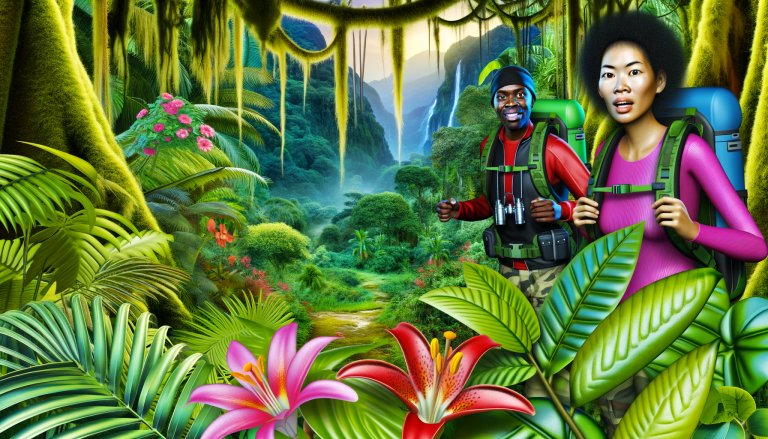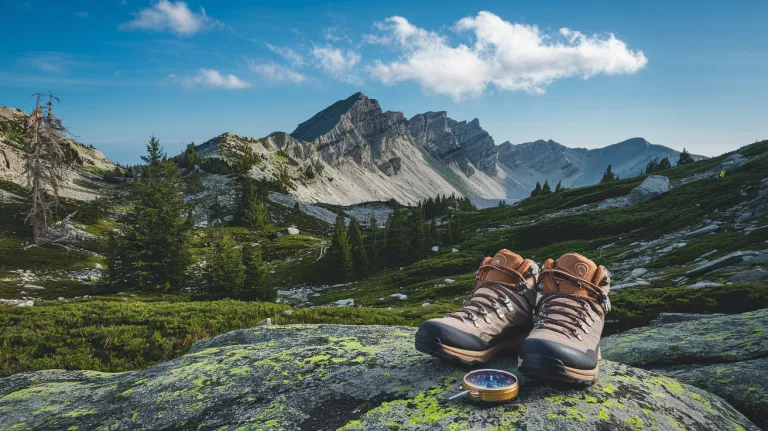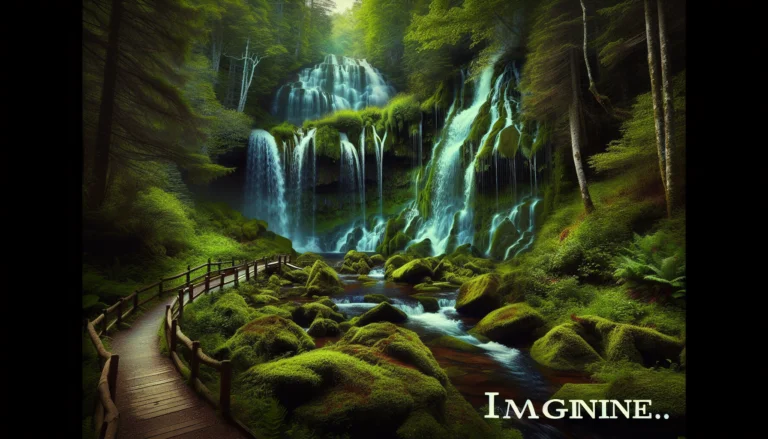Why is adventure travel important?
Introduction: More Than Just a Trip
Have you ever stood at the edge of a cliff, heart racing, eyes fixed on the unknown below—knowing you’re about to leap into something unforgettable? That’s the essence of adventure travel.
Adventure travel is more than just visiting new places. It’s about challenging your limits, awakening your senses, and stepping into experiences that reshape your mindset. Whether it’s hiking through remote mountains, zip-lining through rainforest canopies, or navigating ancient cities off the beaten path—adventure travel brings life to life.
In a world where our days are often structured, predictable, and screen-filled, adventure offers something deeply human: the unknown, the wild, and the deeply personal growth that comes from embracing both. But beyond the thrills, what makes adventure travel so important?
Let’s explore the physical, mental, emotional, and even social reasons why adventure might be exactly what your life—and health—needs.
Physical Health & Wellbeing Benefits

Adventure travel is one of the few forms of leisure that seamlessly blends exploration with exercise. Unlike passive vacations spent poolside, an adventure trip engages your entire body—often without you even realizing it.
Think of a multi-day trek through the Himalayas, a kayaking expedition along a rugged coastline, or a simple morning hike to a hidden waterfall. These aren’t just thrilling activities—they’re intense full-body workouts that improve cardiovascular health, strengthen muscles, and boost endurance.
Exercise That Doesn’t Feel Like Exercise
The beauty of adventure travel lies in incidental movement. When you’re exploring a rainforest or climbing a rocky trail, you’re constantly walking, balancing, bending, and stretching—without the monotony of a gym routine.
Numerous studies show that outdoor exercise is more beneficial for mood and long-term fitness than indoor workouts. Exposure to nature helps lower cortisol levels (the stress hormone), stabilize blood pressure, and elevate endorphin production. That’s why many people report feeling energized and rejuvenated—even after physically demanding adventures.
A Natural Stress Buster
Stress relief is one of the most widely reported benefits of active travel. Whether it’s the rhythmic motion of paddling a canoe, the peaceful silence of a forest trail, or the adrenaline rush of skiing down a mountain—these moments offer a deep reset for both body and mind.
And the best part? You’re not only reducing stress—you’re building resilience. Every time you push through physical discomfort, you train your body (and mind) to adapt, endure, and thrive.
Mental Strength & Confidence Gains

Adventure travel doesn’t just shape your body—it reshapes your mindset. When you’re navigating unfamiliar landscapes, confronting unexpected challenges, or making decisions in the moment, you’re building a powerful inner toolkit: resilience, adaptability, and confidence.
Leaving the Comfort Zone
Stepping outside your comfort zone is at the core of every true adventure. Whether it’s tackling your fear of heights on a via ferrata climb or attempting your first solo trip abroad, the unknown becomes a classroom—and every small success boosts your belief in your own abilities.
The psychological impact is real. According to research in positive psychology, taking part in challenging new experiences leads to greater life satisfaction and self-efficacy—the belief that you can shape your future through your actions.
Problem Solving in Real-Time
Adventure often comes with unpredictability: missed buses, rainy trails, flat tires, language barriers. These aren’t just travel hiccups—they’re opportunities to develop problem-solving skills and emotional regulation.
Over time, these experiences help you stay calm under pressure, make smarter decisions, and trust your instincts. You become more than a tourist—you become someone who thrives in uncertainty.
Building a Growth Mindset
The challenges of adventure travel naturally foster a growth mindset—the belief that you can improve through effort. When you hike farther than you thought you could, learn a new skill on the go, or bounce back from travel setbacks, your brain starts to associate struggle with progress.
You don’t just learn about the world—you learn about yourself. And that confidence comes home with you, influencing your work, relationships, and daily decisions.
Cognitive Benefits & Mindfulness

Adventure travel stimulates not only the body and emotions, but also the brain. From navigating unfamiliar paths to absorbing new languages and customs, the mental stimulation you experience while adventuring can have lasting neurological benefits.
Sharpening the Mind
When you’re on the road, your brain constantly processes new information: maps, signs, languages, social cues, terrain changes. These stimuli activate the hippocampus, the area of the brain associated with learning and memory. This is especially important as we age—research shows that novelty and spatial challenges can slow cognitive decline and improve mental agility.
Even simple tasks like finding your way through a foreign subway system or bartering at a local market can improve problem-solving abilities and pattern recognition.
Practicing Present-Moment Awareness
One of the most underrated benefits of adventure travel is how it forces you into the now. You can’t scroll your phone while whitewater rafting or daydream during a zipline descent. These experiences demand your full attention—and in return, they gift you with presence.
This kind of focused attention is the foundation of mindfulness—a mental state that reduces anxiety, improves memory, and increases emotional regulation. Many adventurers describe entering a flow state—that powerful mental zone where time slows down, distractions vanish, and joy feels effortless.
A Break from Digital Overload
Adventure often takes you to places where your phone loses signal—literally and figuratively. Without constant notifications or the temptation to check in, you’re more likely to engage deeply with your surroundings and the people around you.
These digital detox moments reset your brain’s reward system and help rewire your focus toward real-world stimuli, improving attention span and reducing fatigue.
Social Connections & Meaningful Relationships

While solo travel has its charm, many of the most transformative adventures happen in the company of others. Whether it’s with close friends, a partner, family members, or even complete strangers, shared travel experiences create powerful emotional bonds.
Shared Challenges, Stronger Bonds
There’s something deeply human about overcoming obstacles together—especially outside of your daily environment. Think about completing a multi-day hike with a small group, setting up camp in the rain, or navigating a tricky route through a canyon. These moments of mutual struggle and triumph foster a kind of camaraderie that few other settings can replicate.
Studies have shown that shared outdoor experiences increase group cohesion and trust. The highs feel higher, the lows more bearable, and the laughter—so much more contagious when you’re somewhere far from home.
Making New Connections
One of the most beautiful aspects of adventure travel is its power to connect strangers. Group travel tours, hostels, climbing excursions, cooking classes, or community-led hikes—these all place you in close proximity with people from different backgrounds, cultures, and belief systems.
These aren’t just casual encounters. The intensity and vulnerability of travel often fast-tracks connection, leading to long-lasting friendships, or at the very least, memories you’ll never forget.
“I met my closest travel friend on a sunrise volcano hike in Bali. We started as strangers in the dark and ended the day sharing our lives over banana pancakes.”
Reconnecting with Loved Ones
For couples or families, adventure travel offers a refreshing alternative to the typical vacation. It removes distractions and creates space for quality time, shared decision-making, and mutual discovery. Tackling challenges together—like kayaking across a lake or navigating a foreign city—can reignite connection and trust in ways that dinner dates at home can’t.
Cultural Immersion and Personal Growth

Beyond the physical challenges and mental rewards, adventure travel opens a gateway to something even more profound: a deeper understanding of the world—and your place in it.
Living, Not Just Visiting
While traditional tourism often keeps travelers behind the glass of guided buses or resort walls, adventure travel invites you to immerse yourself in local culture. It encourages curiosity, humility, and meaningful engagement.
Whether it’s learning traditional cooking techniques in a rural village, staying in locally owned eco-lodges, or participating in a community-led conservation project, these immersive moments offer genuine cultural exchange. You don’t just witness culture—you live it, even if only briefly.
Challenging Your Perspective
Traveling through different regions and communities—especially those very different from your own—can be a powerful mirror. You begin to see how people live with less, value different things, and approach problems with alternate philosophies.
This exposure helps break down stereotypes, challenge assumptions, and foster empathy. It’s not uncommon for travelers to return home with a deeper appreciation for both other cultures and their own life privileges.
Developing New Skills
Adventure travel often pushes you to develop new practical and interpersonal skills. These may include:
- Language basics (enough to order food, ask directions, or make a local smile)
- Navigation (from reading topographic maps to using a compass)
- Negotiation and budgeting (essential in markets, taxis, and accommodation hunting)
- Patience and adaptability (because things rarely go exactly as planned)
These new competencies don’t just make you a better traveler—they make you more capable, confident, and adaptable in everyday life.
Finding Your Values
One of the most understated effects of adventure travel is how it clarifies your values. Removed from your usual routines and obligations, you get a clearer sense of what matters to you—freedom, simplicity, connection, nature, growth. Many people report coming home with a renewed sense of purpose or even a shift in career, relationships, or lifestyle choices.Beyond the physical challenges and mental rewards, adventure travel opens a gateway to something even more profound: a deeper understanding of the world—and your place in it.
Sustainable Impact & Ethical Travel

Adventure travel, when done thoughtfully, can be a powerful force for positive change—not just for the traveler, but for the communities and ecosystems involved. In fact, it’s often far more sustainable than conventional mass tourism.
Supporting Local Economies
Many adventure experiences—like guided hikes, home stays, or small-group excursions—are operated by local businesses. When you choose these over large international chains, your money goes directly to the people who live in the area. This creates jobs, supports families, and helps preserve local traditions.
This kind of tourism is called community-based tourism, and it’s increasingly recognized as a tool for economic empowerment—especially in developing regions.
Environmental Stewardship
Responsible adventure travelers often explore natural landscapes—mountains, rivers, forests, deserts. These environments are fragile and increasingly under threat from climate change and over-tourism. But by participating in low-impact activities (like hiking, kayaking, or wildlife watching) and respecting Leave No Trace principles, you help protect what makes these places special.
Even better, many adventure tour operators actively contribute to conservation efforts. Some reinvest a portion of profits into local environmental projects, while others offer eco-volunteering options that let travelers give back directly.
“Adventure travel makes people fall in love with nature. And people fight to protect what they love.” — Adventure Travel Trade Association
Encouraging Conscious Choices
Adventure travel also encourages more mindful consumption. Travelers often carry less, waste less, and choose more sustainable products on the road—like reusable water bottles, ethical gear, and plant-based meals.
This shift in behavior often extends beyond the trip, influencing how travelers live and consume back home. A single eco-conscious trip might be the spark that leads someone to rethink their habits, reduce their carbon footprint, or support environmental causes.
Recap: Why Adventure Travel Truly Matters
Adventure travel is far more than thrill-seeking or collecting Instagram-worthy photos. It’s a transformative experience—one that touches nearly every aspect of your being.
Let’s recap the powerful reasons why it matters:
| Benefit | What You Gain |
| Physical Health | Improved fitness, better sleep, and stress relief from natural movement |
| Mental Strength | Confidence, resilience, and a growth mindset forged through challenge |
| Cognitive Stimulation | Enhanced focus, memory, and adaptability via new stimuli and environments |
| Social Connection | Deep relationships through shared experiences and cross-cultural friendships |
| Cultural Understanding | Broader worldview, empathy, and respect through immersive local engagement |
| Sustainability & Ethics | A chance to travel responsibly and give back to communities and the planet |
Each adventure shapes you, sometimes in obvious ways—like learning how to pitch a tent in high winds—and sometimes in quiet, lasting ways: you return home with a lighter heart, a sharper mind, and a deeper connection to the world around you.
Adventure travel doesn’t just make you feel alive while you’re out there.
It redefines what it means to truly live.
Final Thoughts
Whether you’re planning a solo backpacking trip through South America, a group safari in Kenya, or a weekend hike in your local mountains, remember: adventure is less about distance and more about intention. It’s about saying yes to challenge, yes to growth, yes to the unknown.







